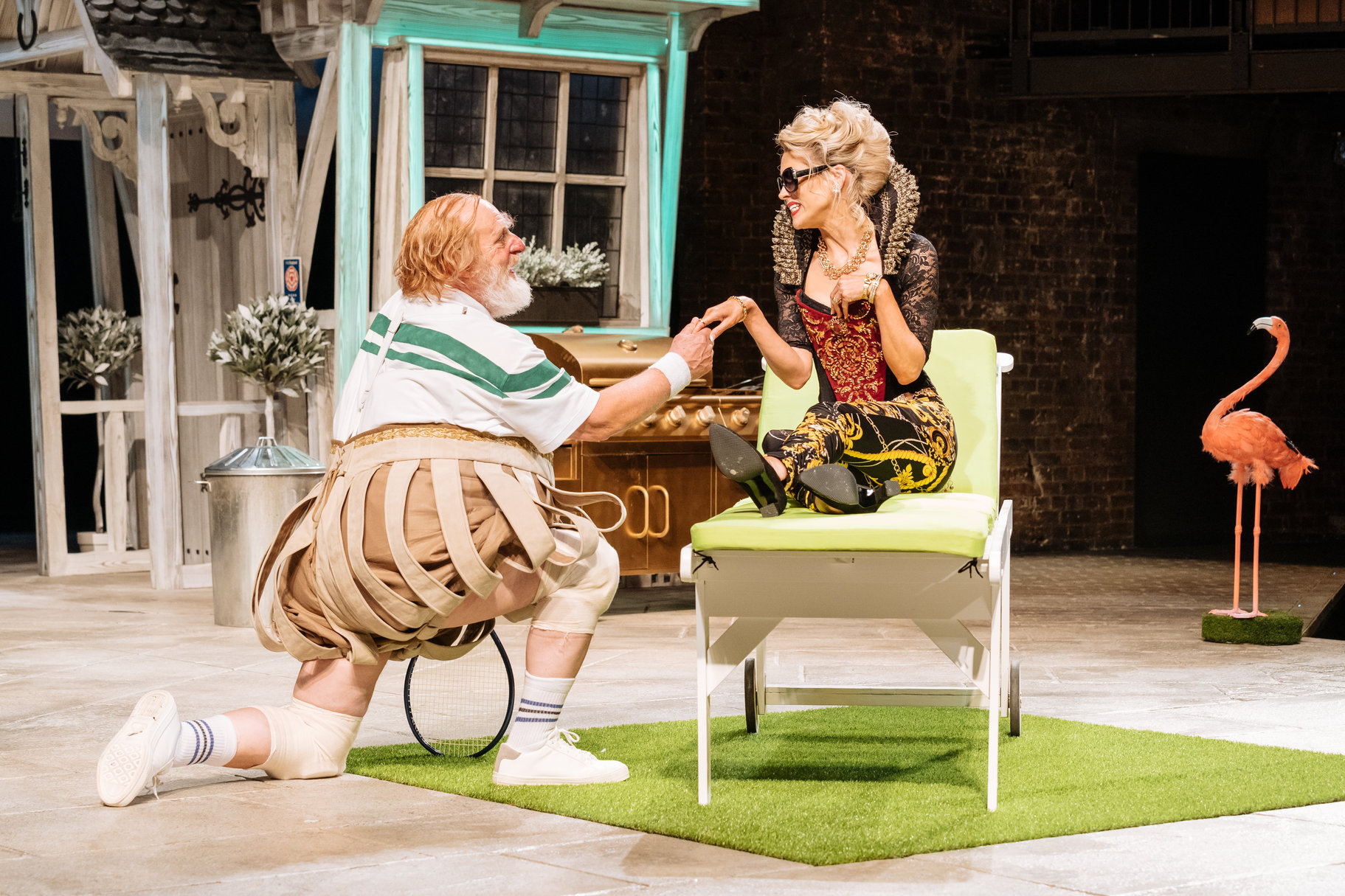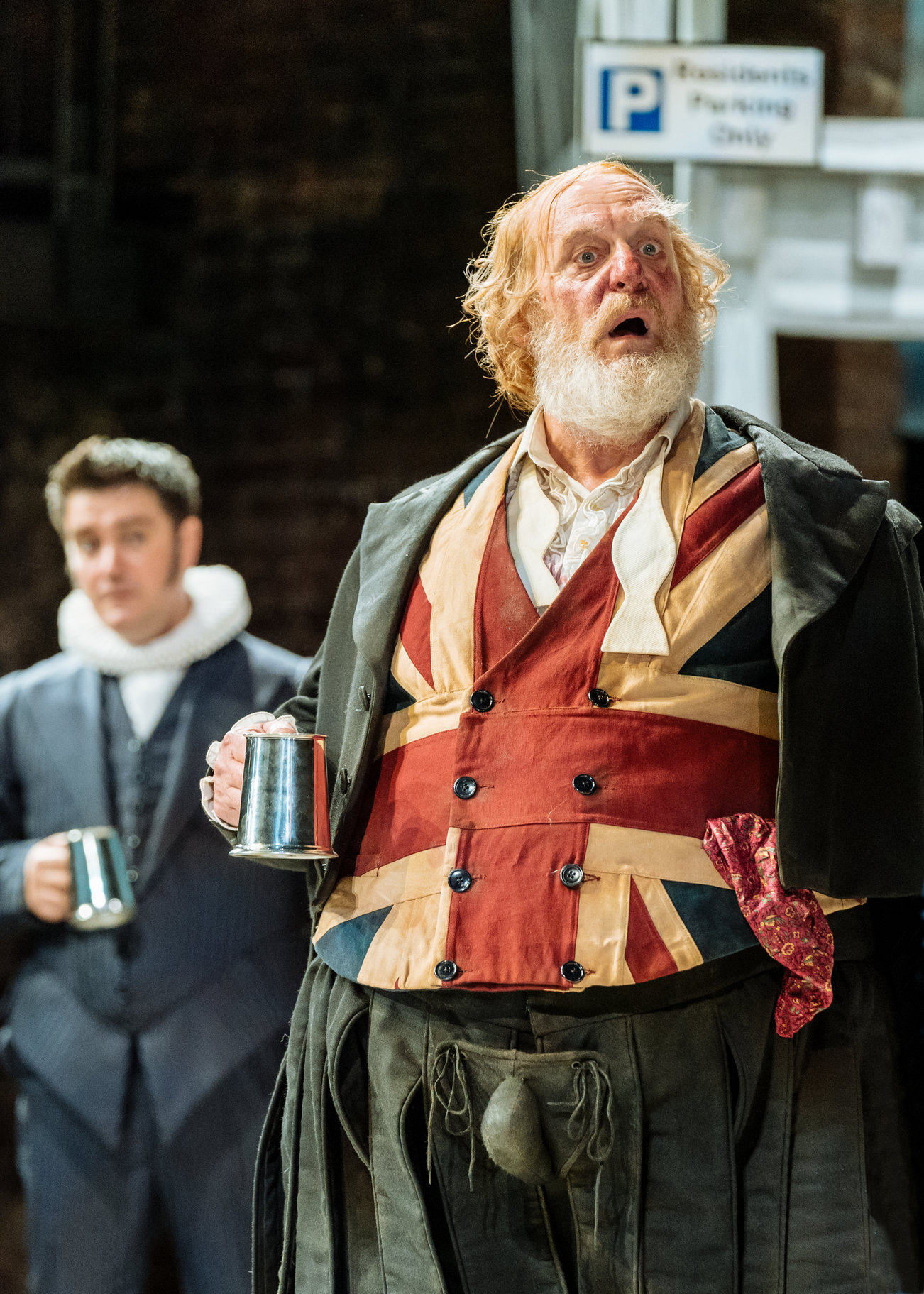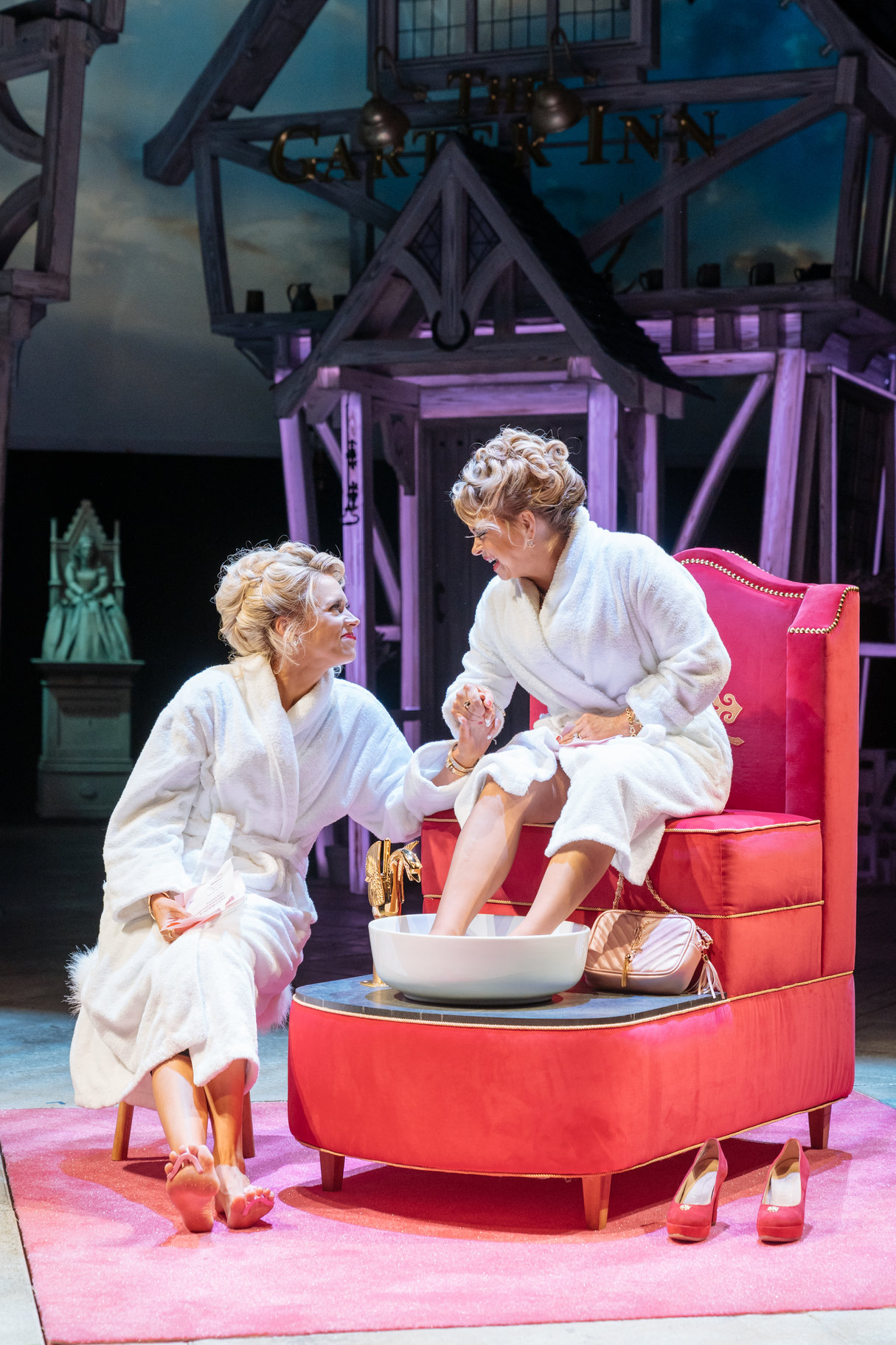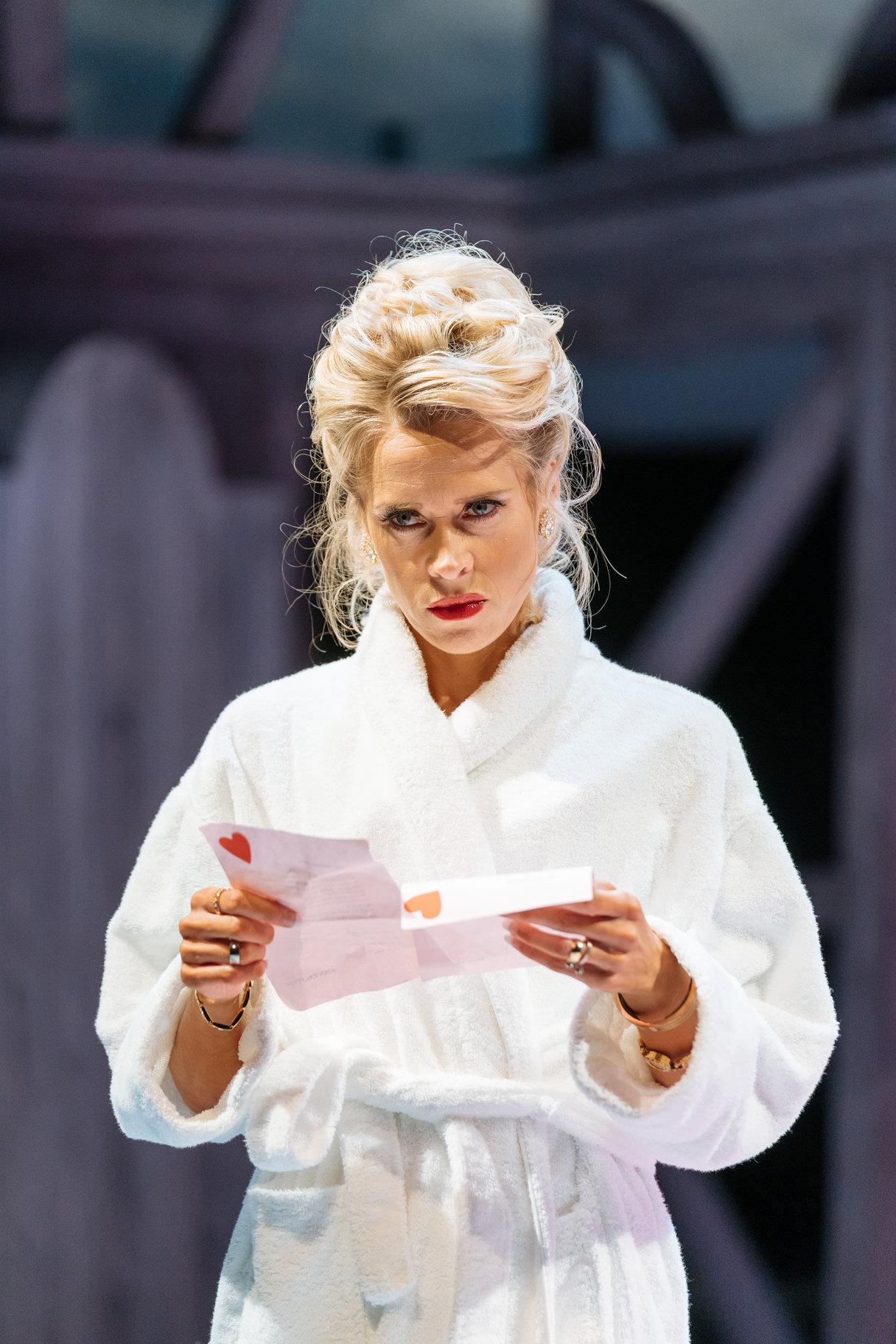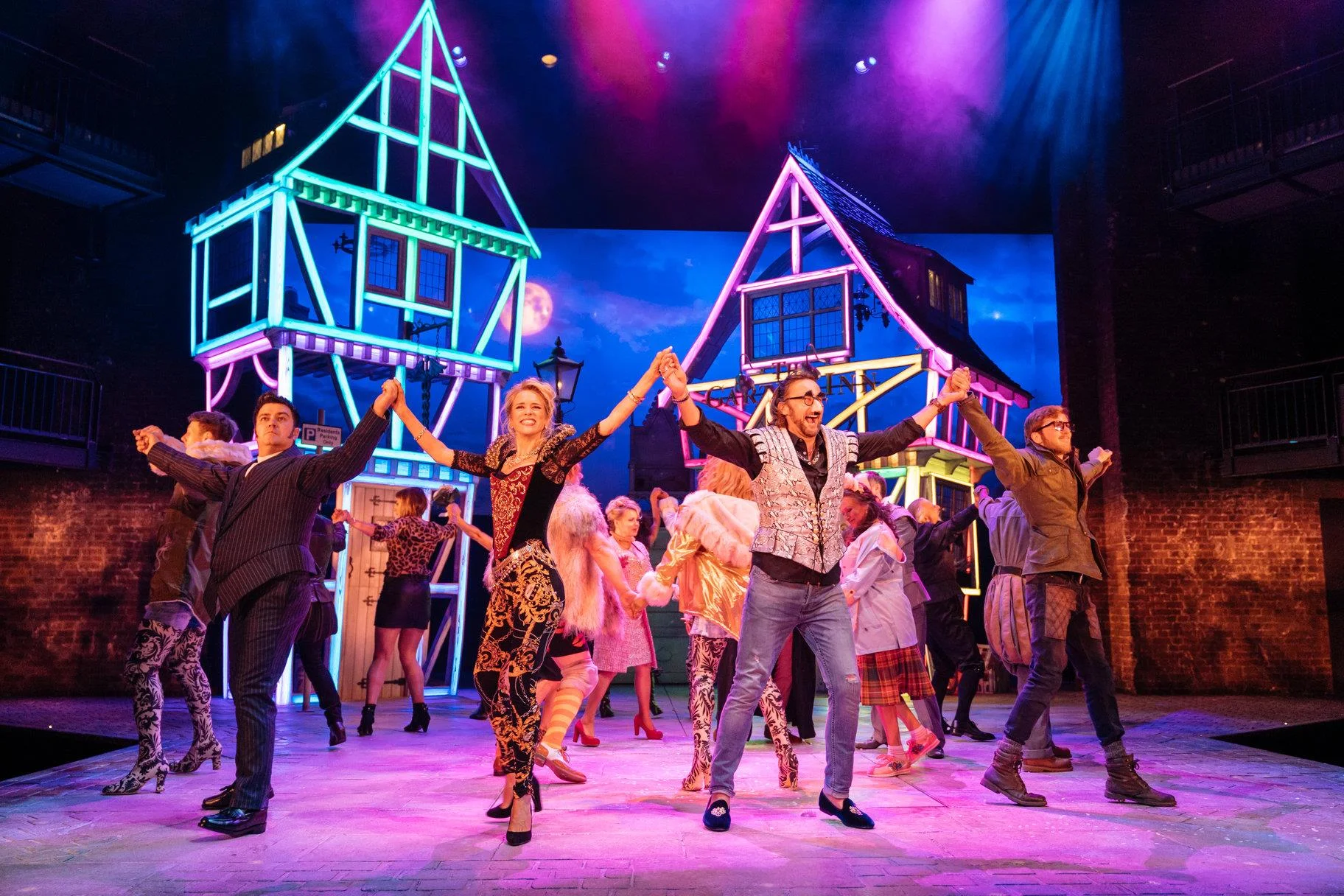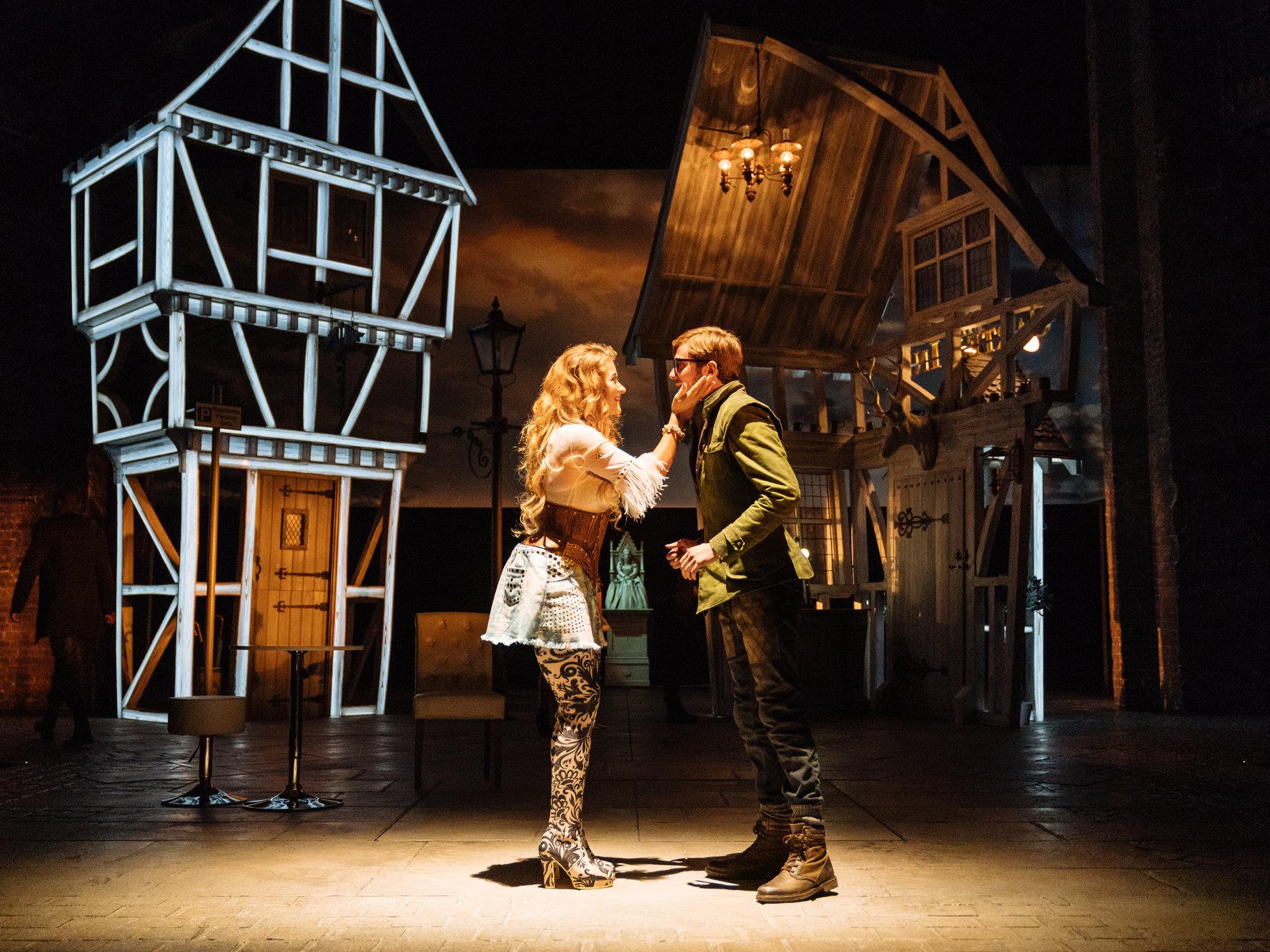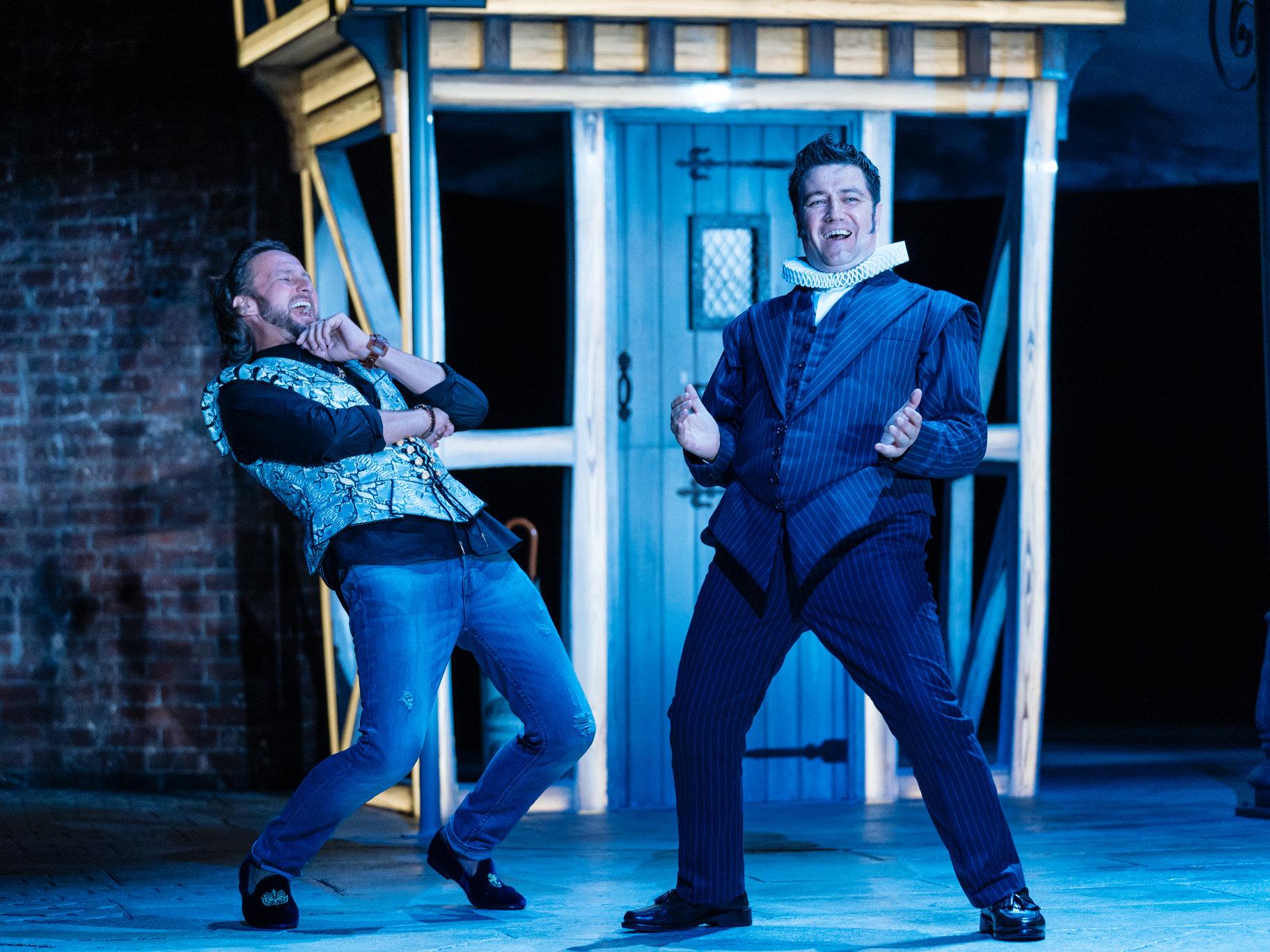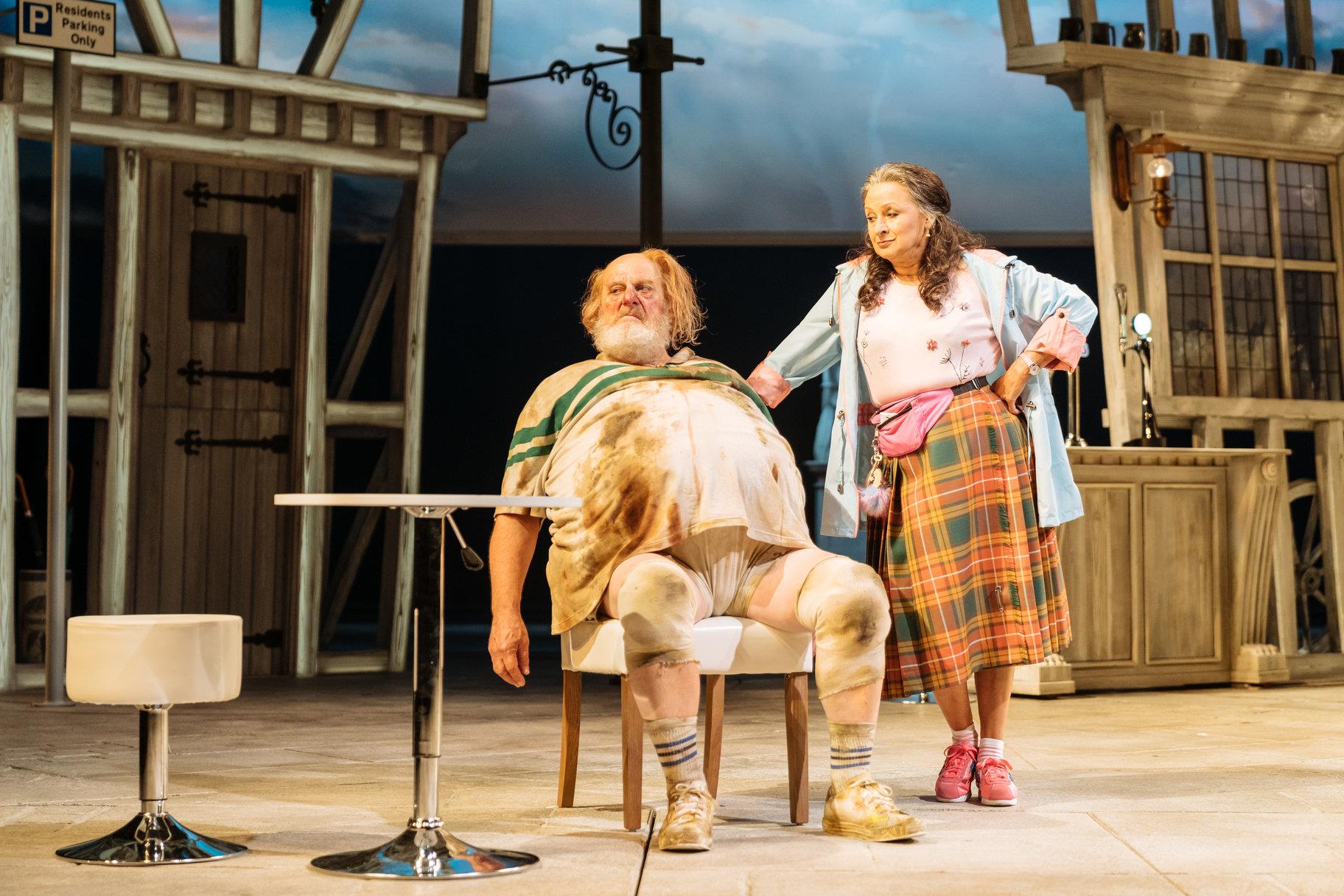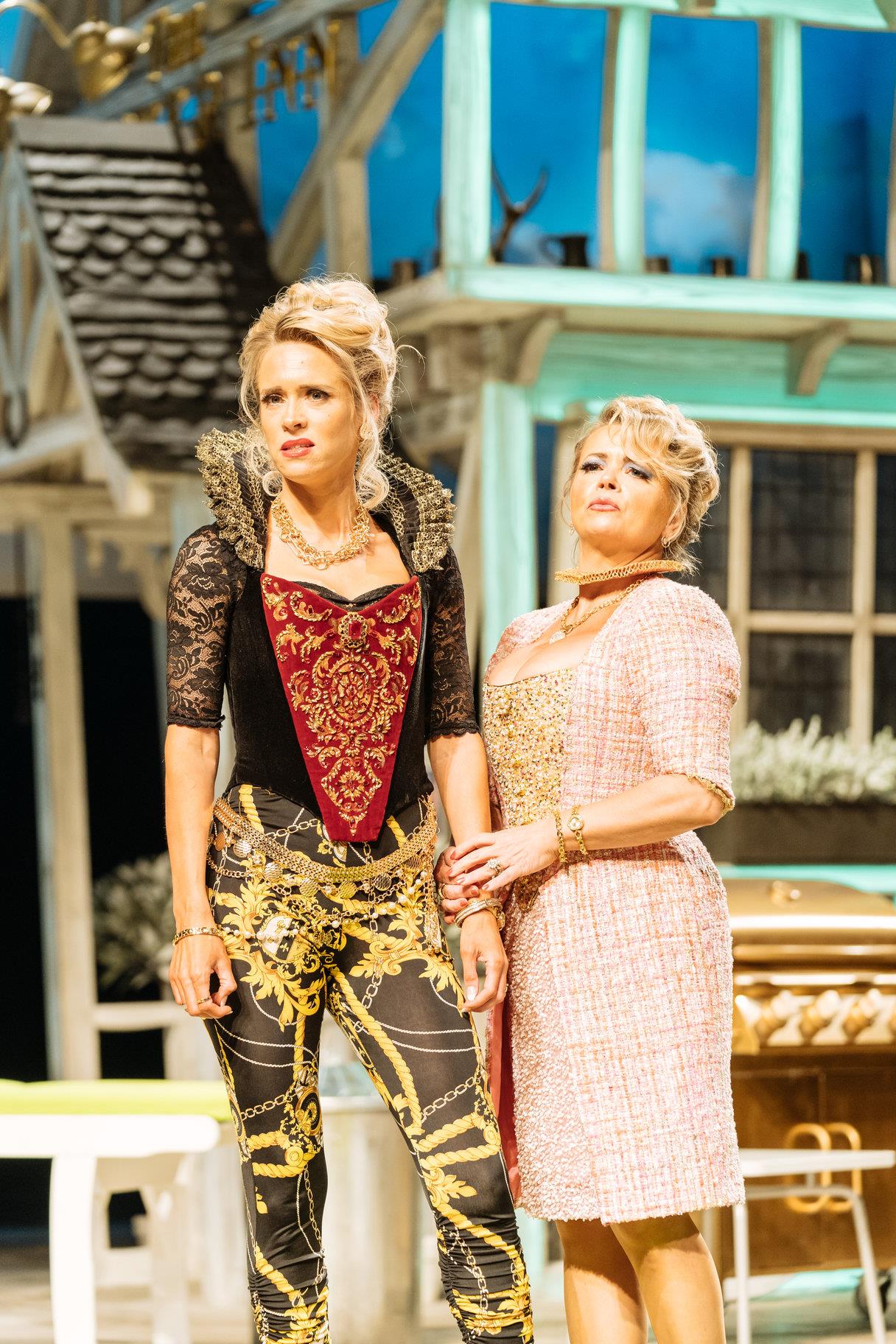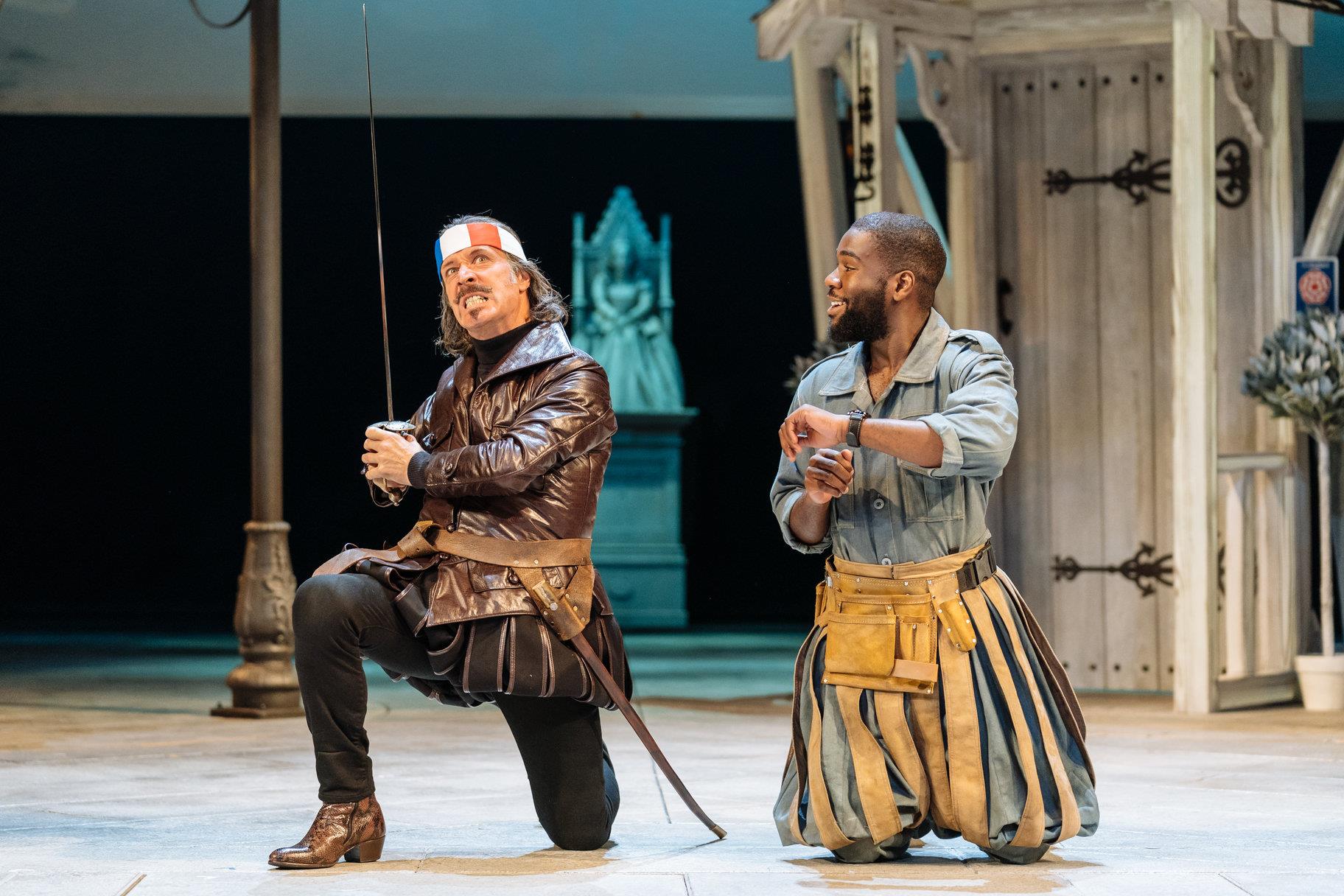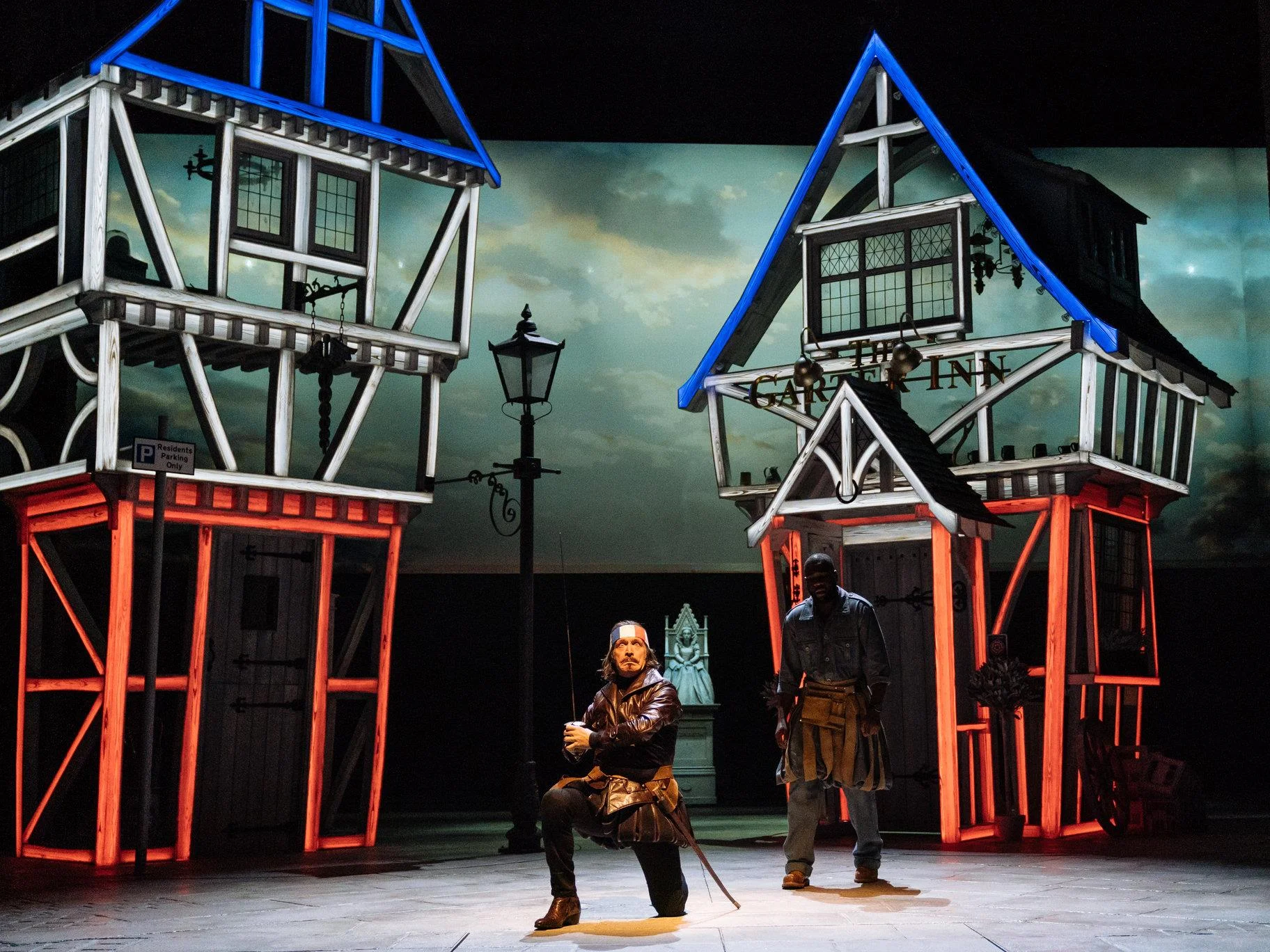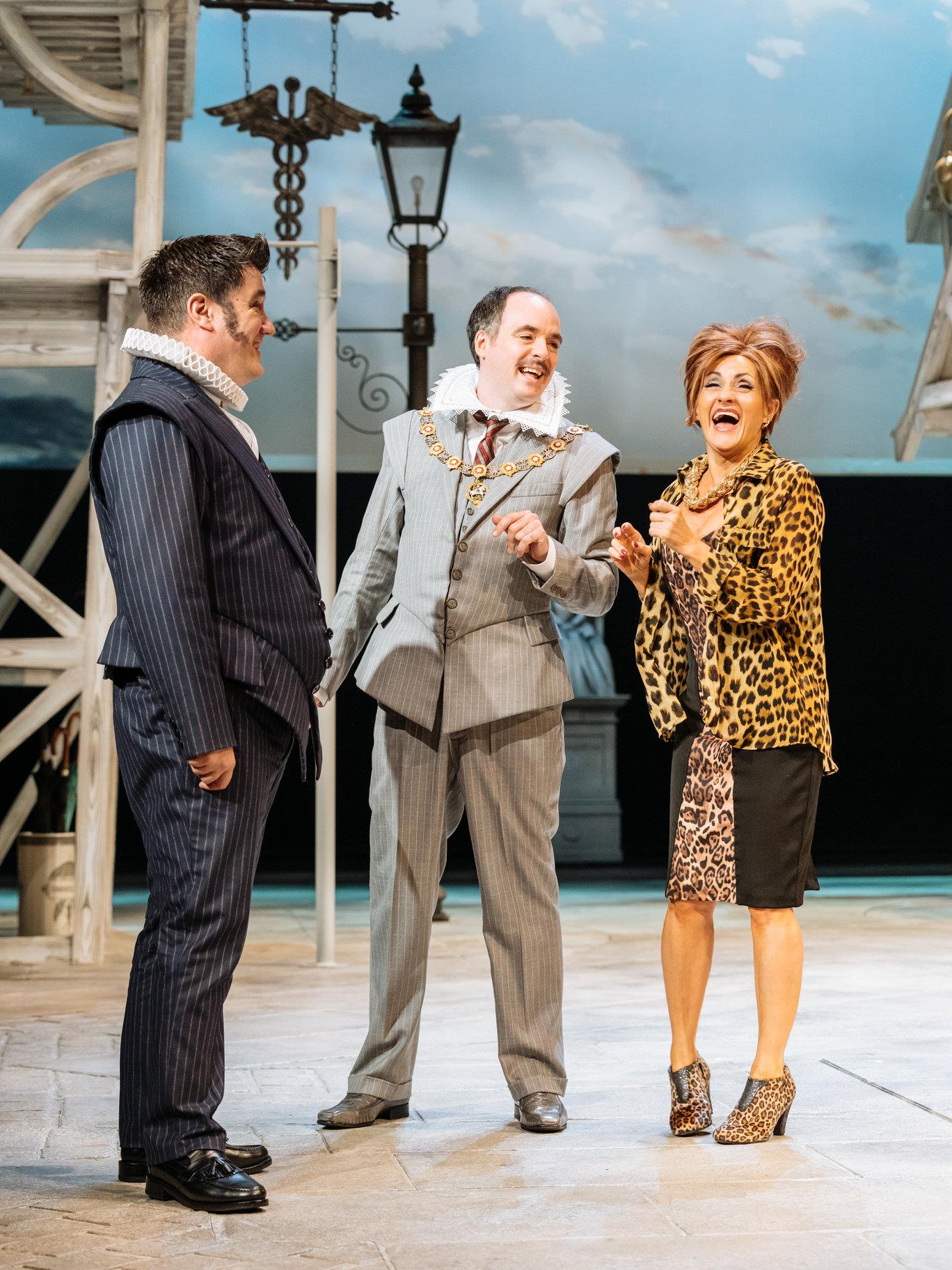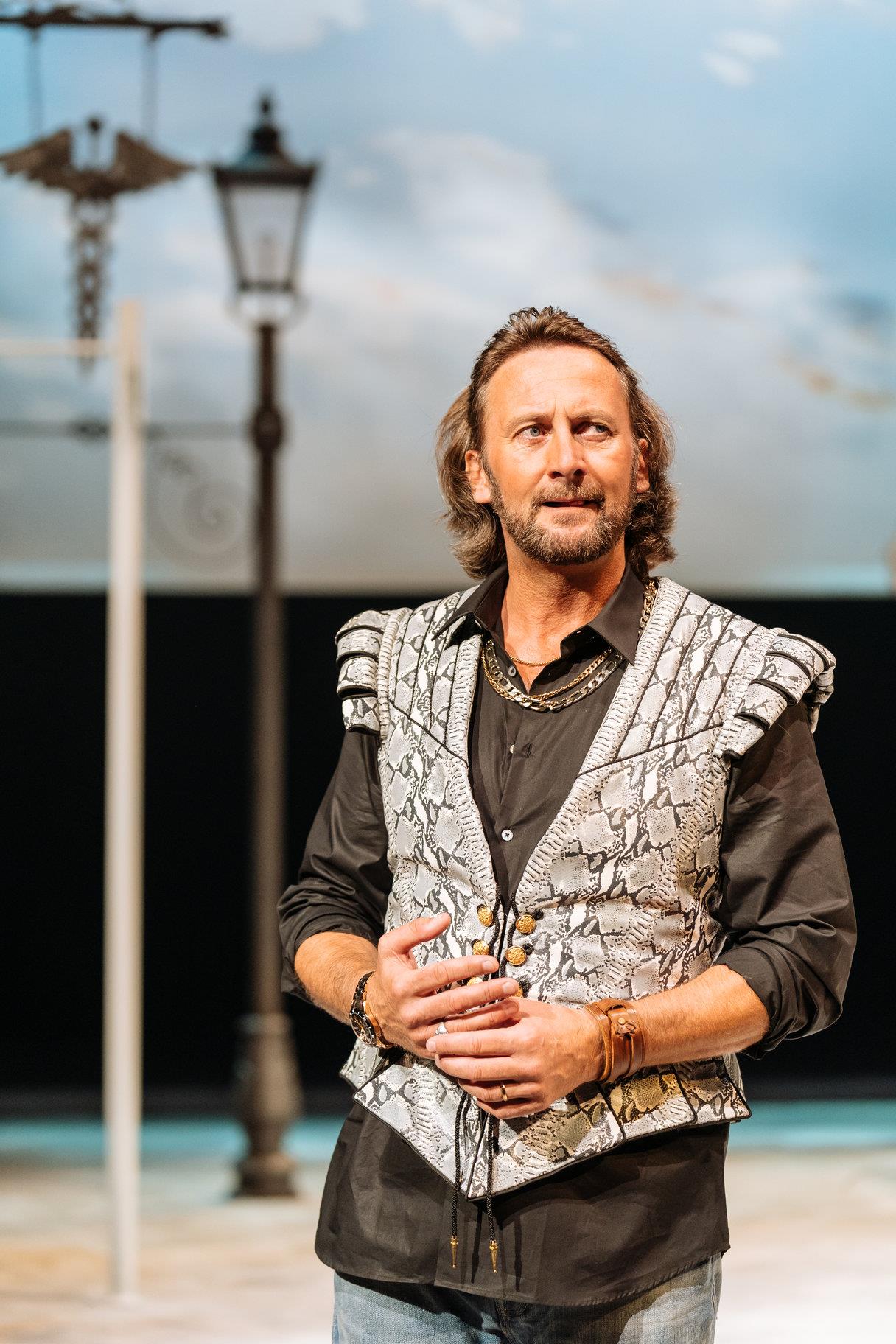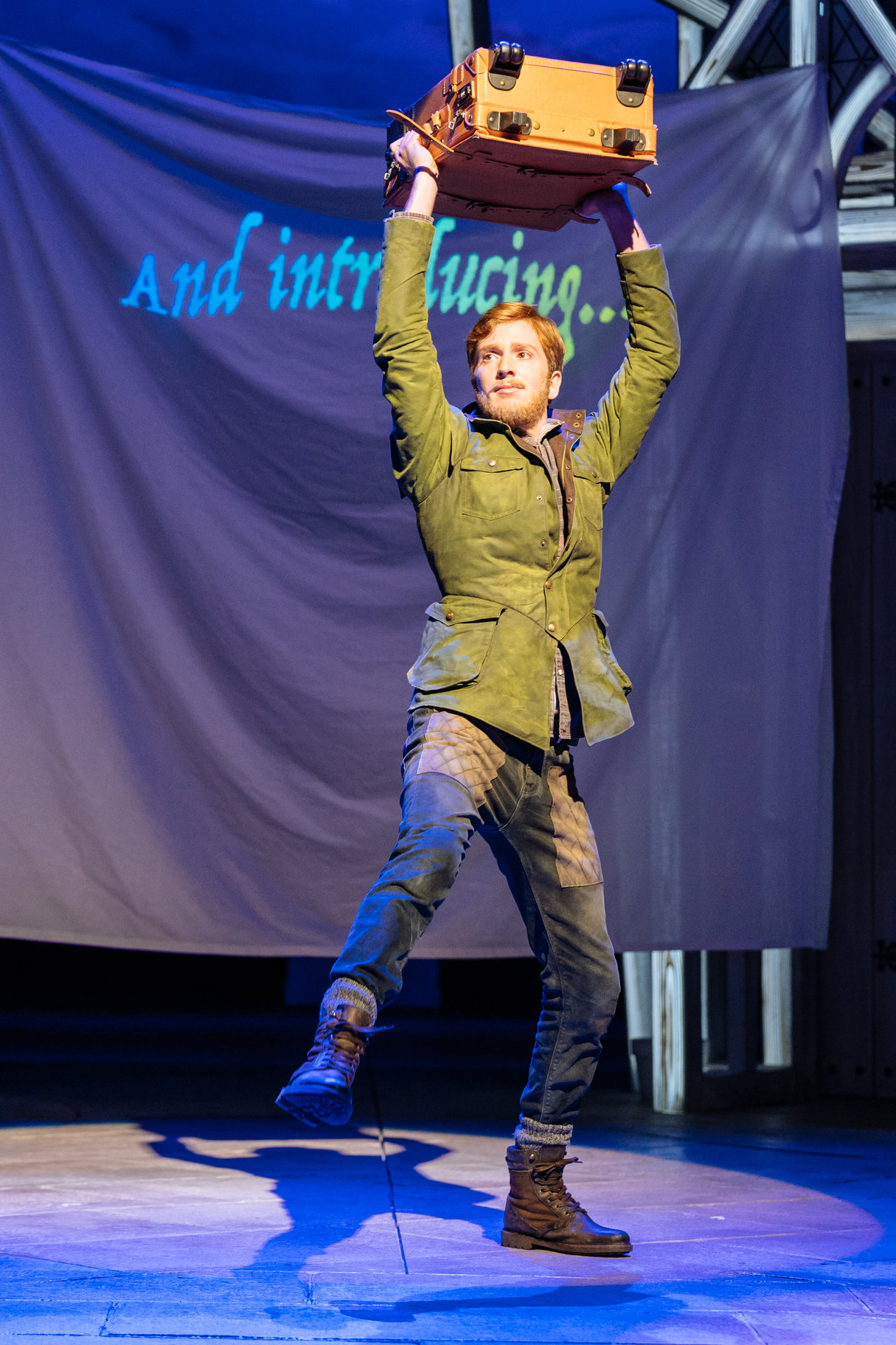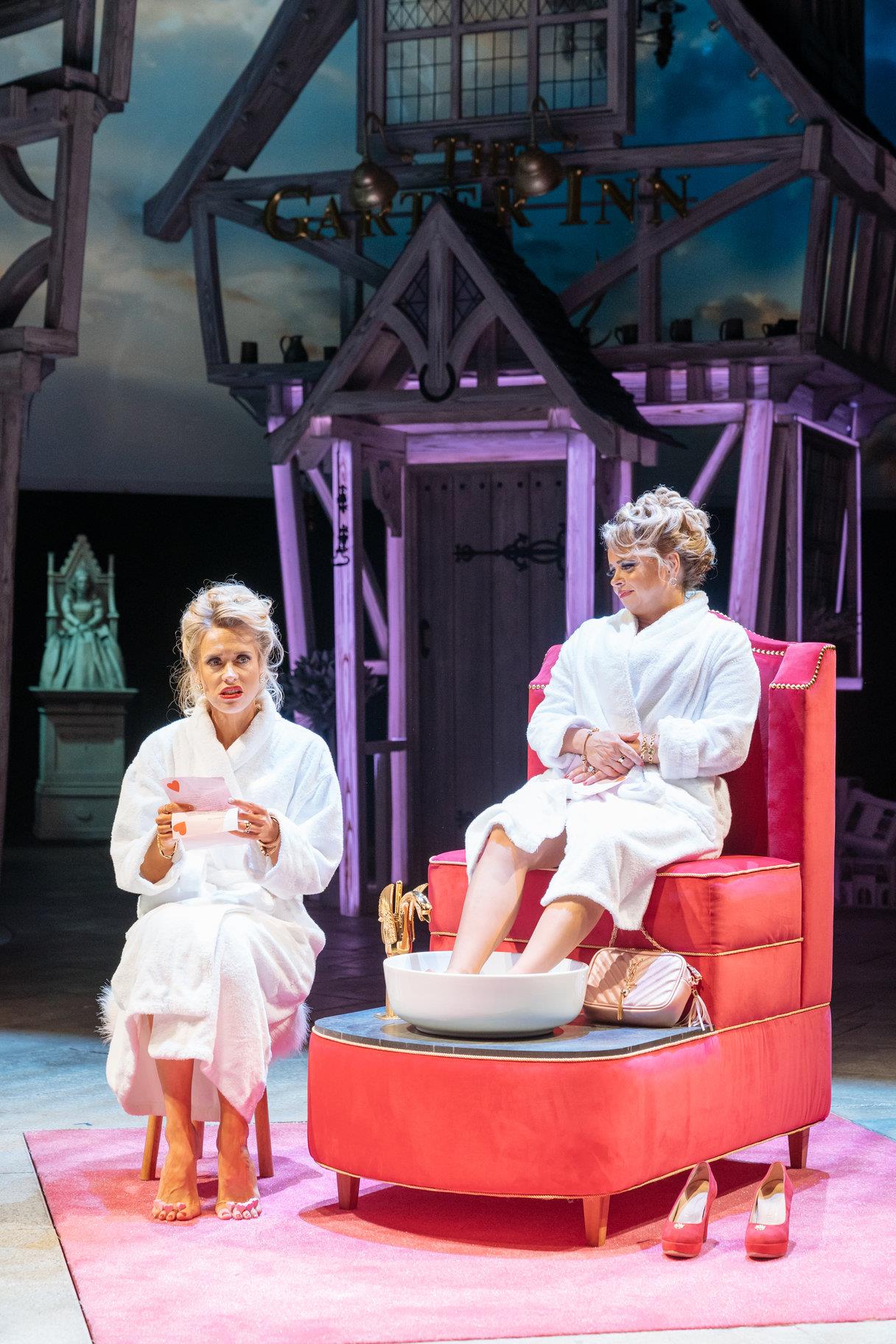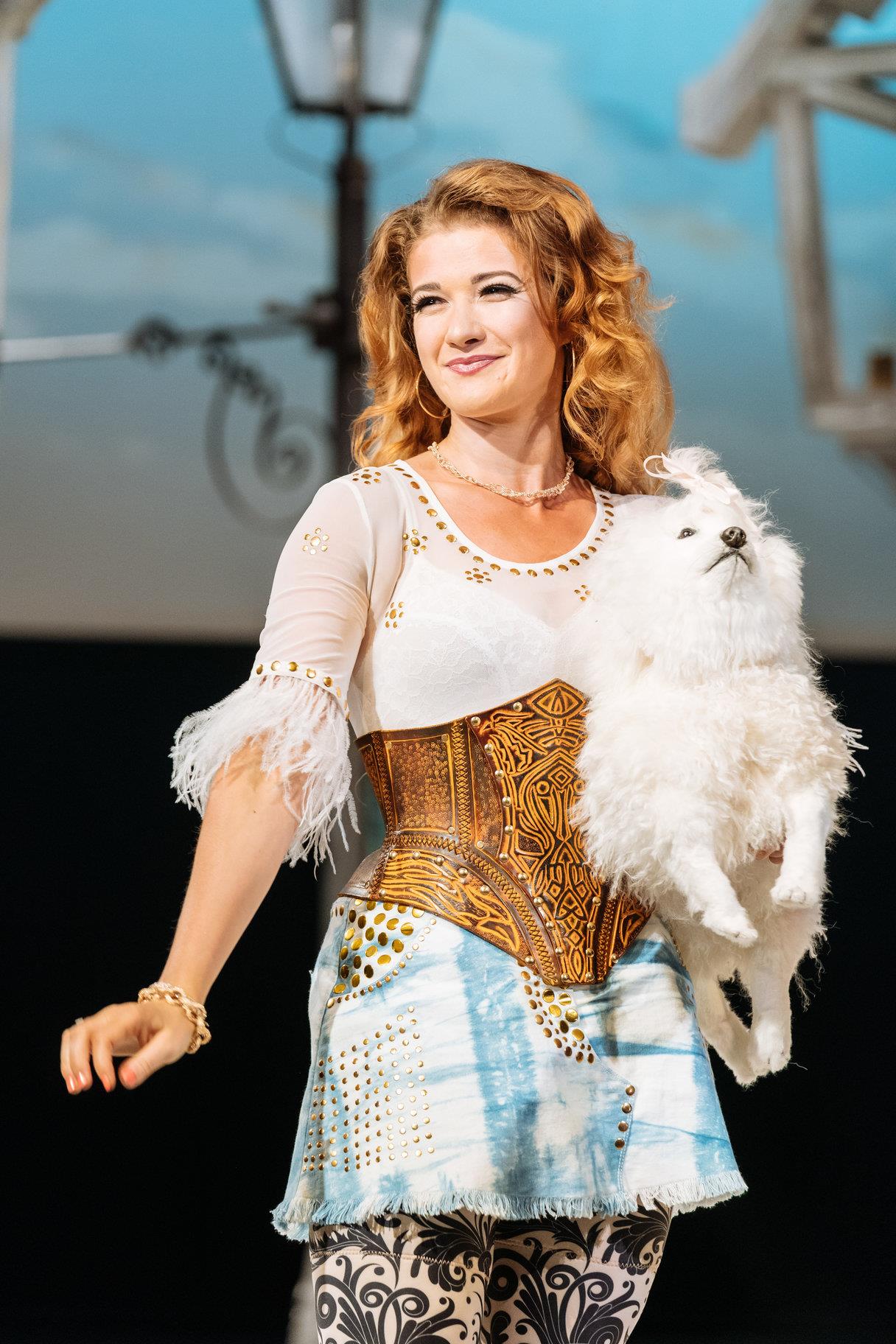Working as musical arranger and orchestrator on the Royal Shakespeare Company’s 2018 production of The Merry Wives of Windsor, I had a rare opportunity to work across a genuinely broad spectrum of musical styles. Plus I had the joy of working with internationally renowned and award winning director and composer, Fiona Laird. Fiona composed the music for this production and from the outset had unique, fresh and exciting ideas for a musical landscape to accompany this comic romp.
“‘Shakespeare meets The Only Way Is Essex... Fiona Laird’s brightly colourful and industriously daft production…there’s barely a gag-free minute’”
As I came onboard the project Fiona had already written some of the main themes and gave me some very clear style references which were not only invaluable as a guide to the musical arrangements but also helped me plan an initial orchestration strategy, especially given that the lead-in time was very tight. Fiona’s style references encompassed songs by Dolly Parton, Atomic Kitten, Motown, plus types of renaissance dance music, Parisienne cafe music, Russian folk ballads, classic Rachmaninov themes and 80s Power Ballads. This really was a musically kaleidoscopic show! Adding to this zany mix of styles was an unusual line up of instruments. I had an 8-piece band at my disposal featuring a fairly standard rhythm section line up of kit (percussion), bass (electric and acoustic), electric guitar, keys and violin. But instead of a modern horn section we had an wonderful assortment of period instruments (baroque cornett, alto and soprano shawms, crumhorn, recorders and bass viol). Never having scored for this instruments before I was very grateful to the brilliant players (David Jarratt-Knock, Jude Rees and Juliana Day) for their quick advice on ranges and keys. In our early discussions Fiona became increasingly excited about using these period instruments in place of a modern horn section, in addition to using them ‘conventionally’, and this concept was absolutely in keeping with the overall production design.
500 Years of Instruments, 8 Players, 1 Amazing Band
(top row) the Reed 2 chair line-up of crumhorn, clarinet, sax, and shawms, with a balalaika in the distance. (bottom row) Sianad Jones poses with her bass viol and RSC guitarist Nick Lee is too cool for his Lute.
“Contemporary fashions seem to have mated with their Shakespearian equivalents in Lez Brotherston’s dazzlingly witty hybridised costumes. Mistress Ford’s figure-hugging cat suit has sprouted a high, ornate Elizabethan collar and is pulled in with a velvet bodice from the same period.”
My first task however was to create the piano rehearsal score for the show’s Musical Director, Gareth Ellis (Chicago, Avenue Q, Spamalot, The Producers, Les Mis). I had just under a fortnight to take Fiona’s ideas together with the working cue list and generate a playable score whilst simultaneously deciding upon which instrumental doublings to employ.
“‘Fiona Laird has directed the play not unlike a 21st-century sitcom: perky scene-change musical stings, sharp-tongued exchanges’”
I quickly hit-upon a style of scene change cue that excited Fiona, consisting of short, punchy and rhythmically intricate stings not unlike those you hear in classic American sitcoms (Friends, Cheers, Frasier etc.). Fiona’s infectious, melody driven themes lent themselves perfectly to this kind of treatment. Many of the audiences and critics picked up on this musical element as an important narrative and stylistic device within the overall score. The musical theatre style prologue to the whole show gives an immediate overview of the eclectic mix of melodically driven styles and arrangements that drove the show:
One of the joys of working as an arranger/composer at the RSC is being able to use live musicians. For the majority of my work as a theatre composer and sound designer I am either producing purely electronic scores or, if the budget allows, working with musicians in a studio to record some material prior to production week which I can then form into musical cues and underscore. Even when working in the field of new musical theatre budgets are such that 2 to 3 instruments is often the max. So having a band of 8 musicians to work with on Merry Wives was a rare treat.
From the quasi-classical, pastoral and oozingly romantic Fenton’s Theme (featuring a beautiful Oboe solo from Jude Rees)…..
….. to the motown and Funk infused Ford’s Theme, featuring a wah-soaked guitar solo from Nick Lee and renaissance wind instruments as you’ve never quite heard them before….
… we certainly covered a kaleidoscope of styles in this production.
“Bruce O’Neil, the RSC’s head of music, says that while, in the cut-throat world of producers wanting to maximise profits, music can often be seen as a luxury, for an audience the value is huge. Live music has a different quality, he argued: “The air moves in a different way and creates effects that you can’t capture with a recording.””
After some complex sudoku style problem solving, I finally arrived at the following instrumentation and doubling plot:
Pno/MD
Electric Guitar, Acoustic Guitar, Lute, Balalaika - Nick Lee
Double Bass, Electric Bass - Ayse Osman
Drum Kit, Percussion (incl. Timp, Tubular Bells, V Drums) - Tim Farmer
Reed 1, Recorders - Juliana Day
Reed 2, Alto Shawm, Crumhorn, Alto Sax, Clarinet - Jude Rees
Cornett, Soprano Shawm, Renaissance Bagpipes - David Jarrat-Knock
Violin/Viola da Gamba - Sianed Jones
With the Piano/MD score finished, and with only a few weeks until production week, the next job was to complete the orchestrations for the Merry Wives CD. One of Bruce O’Neil’s excellent innovations as head of music at the RSC is the production of a soundtrack recording featuring musical highlights from every new RSC production, together with excerpts from archived scores of previous RSC productions. The final CD for this 2018 production of Merry Wives also features music from the 1964 Aldwych Theatre production composed by Malcolm Williamson, together with recordings of some of the speeches from the play performed by the 2018 cast. Engineered and mixed by award-winning producer Gareth Cousins the CD is now available to purchase online and at the RSC Shop.
Orchestration HQ at the RSC, including the all important Q-list spreadsheet, and 2 days to orchestrate the show
In the Red TX Audio Truck polishing the RSC Live Mix
With the soundtrack recording safely in the bag, it was then time to crack on with orchestrating the show cues themselves. I moved into a room in the RSC music office for a few days prior to production week and was also able to meet up with programming wizard Jack Hopkins to start the process of preparing the keys patches. I’m extremely indebted to MD Gareth Ellis for his clear and precise advice and feedback throughout the short but intense tech week, all of which meant that, despite the large number of cues, we stayed on track and just about ahead of ourselves. Most of the re-writes and re-scoring I was able to complete and re-print in situ, from FOH. The one additional complication in this production was that the band were located in the ‘Band Box’ - a room high above the RST stage. With Gareth unable to hear the mix ‘in the space’ it was essential that I could act as his pair of ears whilst also continuing to refine the orchestrations.
I was also chuffed to have had the opportunity to work closely with Tony and Drama Desk award-winning sound designer Greg Clark. Together with RSC sound technician Chris Vernon, Greg created a superb and expertly balanced mix that not only captured the colourful, punchy and detailed elements of the score and orchestrations, but also managed to blend the unusual combination of contemporary and renaissance rhythm and horn sections.








